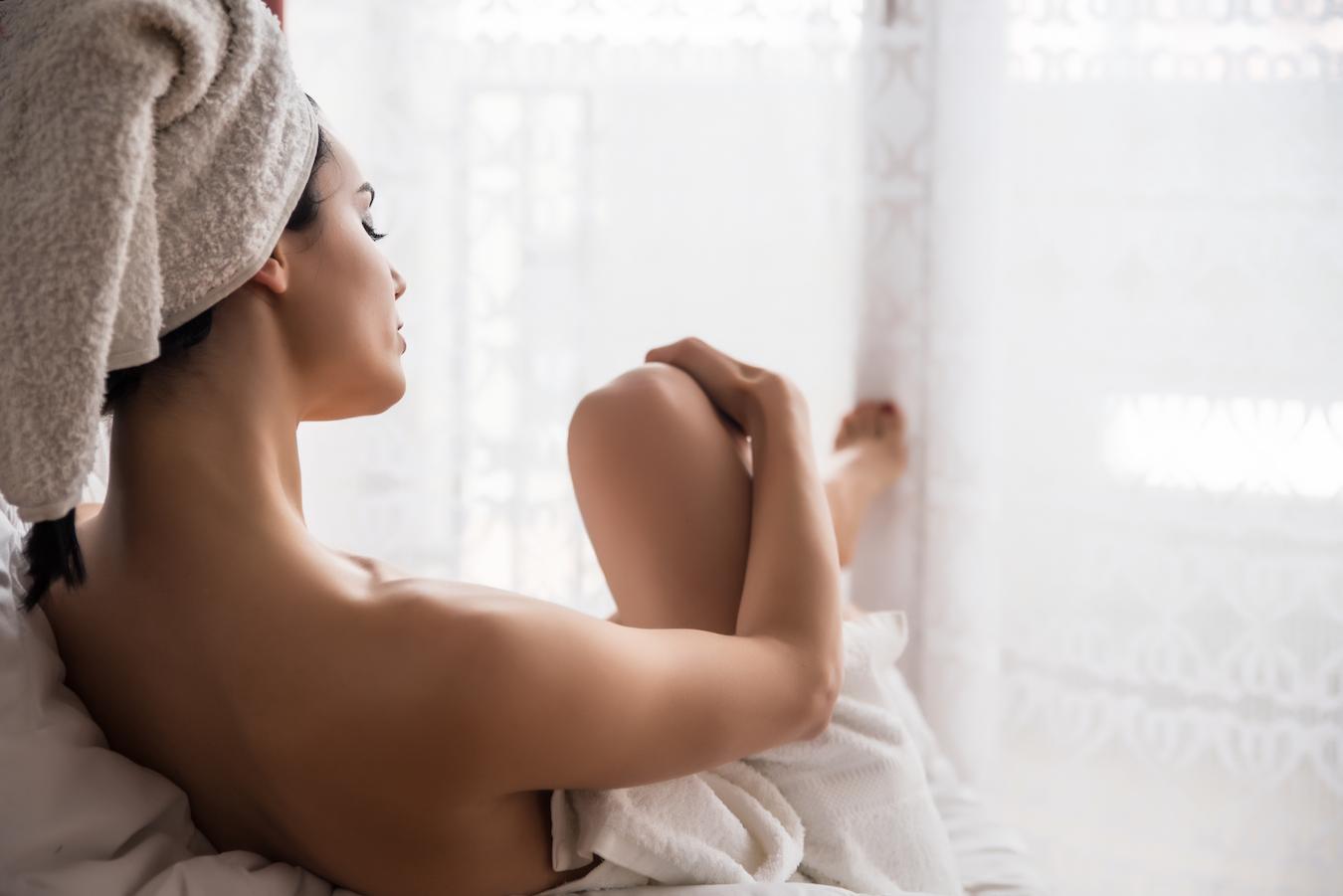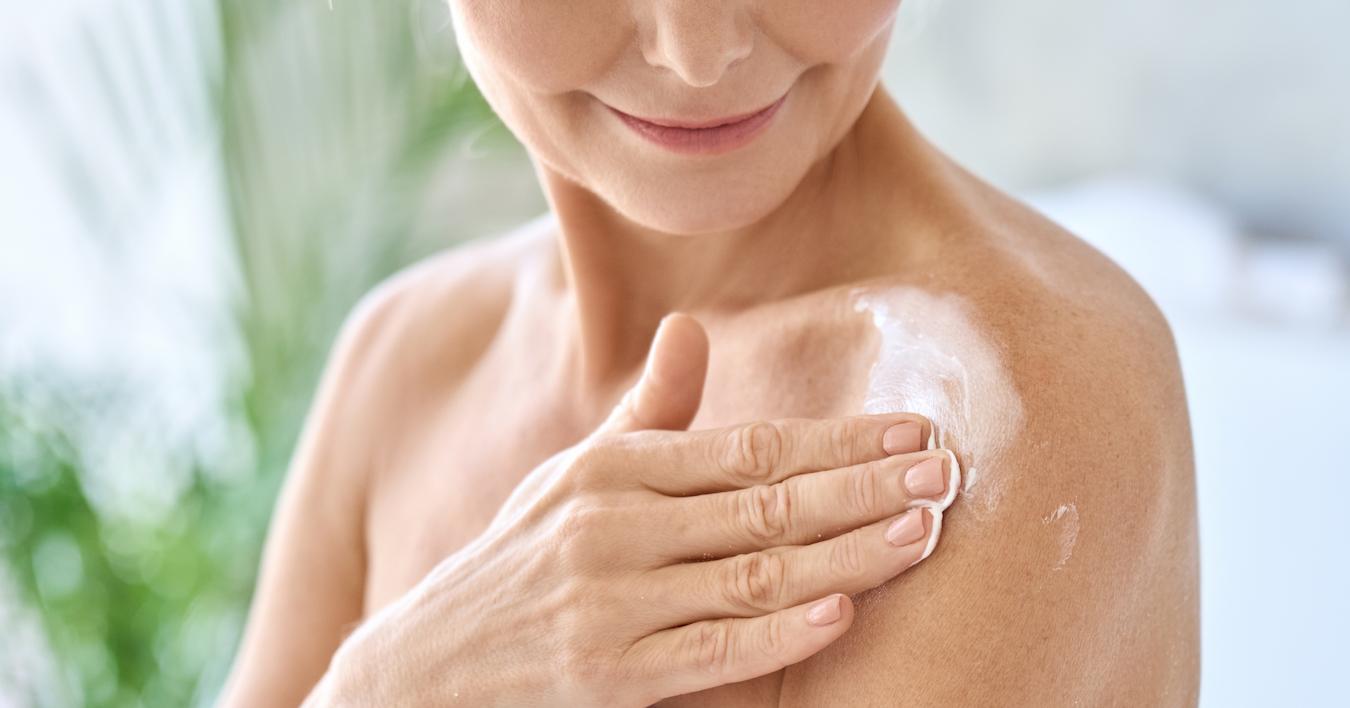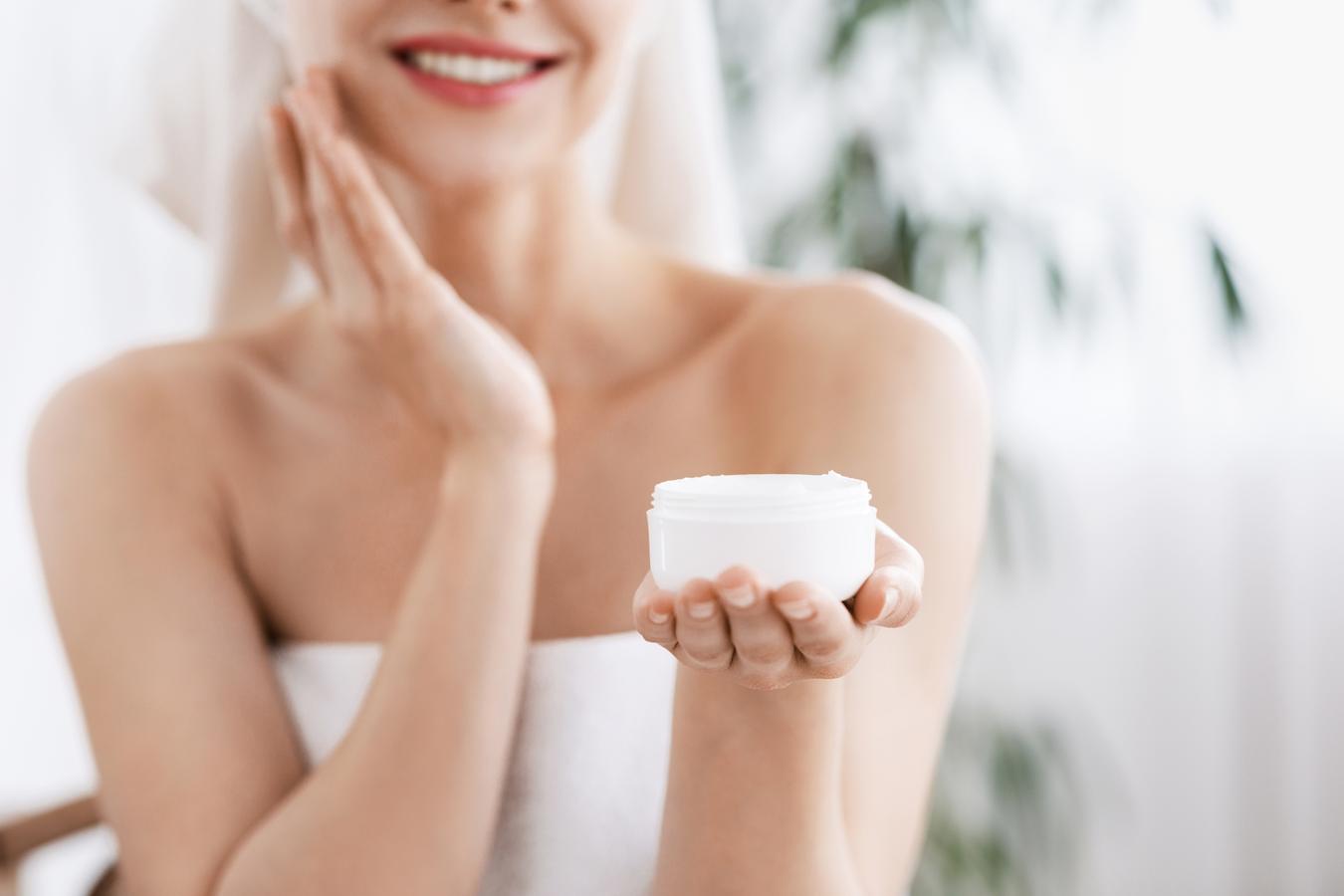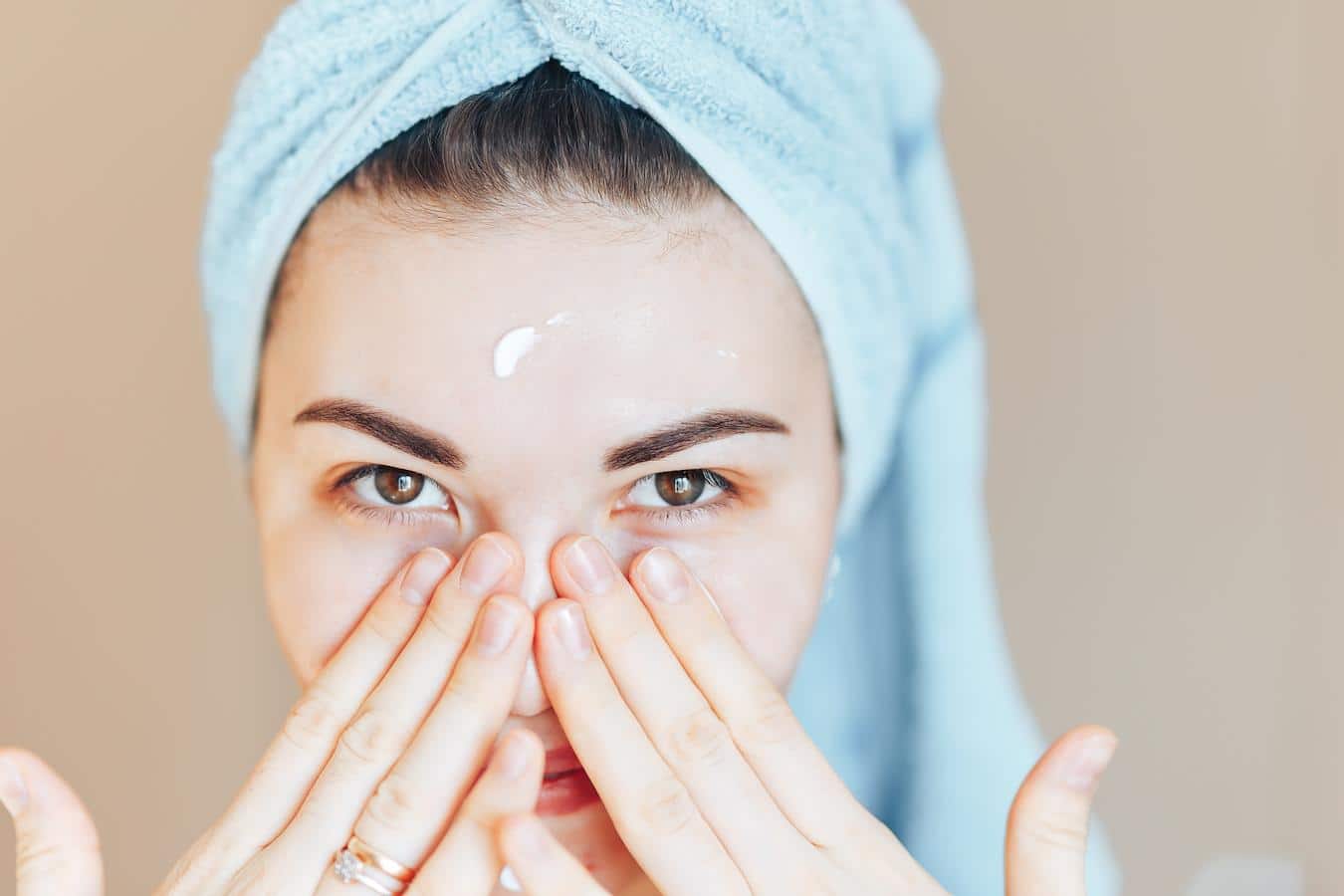Why Is My Skin Dry After I Shower?
Dryness after bathing is a common occurrence. Fortunately, it is totally treatable and can be avoided when you change some basic body care habits.
Using a water-based body moisturizer immediately after showering is probably the best way to resist dry skin. Why? Because these light moisturizers interact with damp skin to seal the hydration. But, wait! There’s more!
Here are some of the most common reasons for dry skin after bathing, and some tips to assist you to avoid it in the future.

HOT SHOWERS AND BATHS CAN HARM YOUR SKIN – ESPECIALLY DURING THE WINTER
When it is cold outside, a warm, steamy bath is what we think we need to stay warm. However, a warm bath can cause skin dryness afterwards, even though it feels pleasant at the time.
It is crucial to avoid hot showers since dry skin is the most prevalent cause of uncomfortable, sensitive skin. Bathe and shower in lukewarm water. Bathing in heated water in the cold not only burns the body but can harm the outer layer of skin.
Dry skin may lead to more significant issues like skin irritation and potentially exacerbate eczema. Using gentle, fragrance free soaps in combination with water-based moisturizers will greatly reduce dry skin after your shower as well as prevent skin irritation, and even eczema.
BONUS TIP: Using a towel after a shower to rub away moisture isn’t doing your dry skin any favors. Instead, try gently blotting away the larger water droplets with a soft towel, and let the rest of your body air dry. This will help diminish irritation, and allow your wet skin to soak up the literal moisture after your shower!
See Related: What Does Hyaluronic Acid Do For Acne?
DIFFERENT FACTORS AFFECTING DRY SKIN
Many factors can cause dry skin after you take a shower and some might include:
SKIN and BODY CARE
In the bath (and shower), most people love using perfumed cleansers, body washes, soaps, shampoos, and hair treatments. These treatments often have chemicals and synthetic fragrances which can cause adverse reactions for your skin, resulting in dryness, irritation and other issues.

Contact dermatitis is the medical term for this condition. According to the experts, the most prevalent element that might induce skin sensitivity is the scent.
If a water-based moisturizing cream alone isn’t enough to relieve itching, people may have to change their bathing supplies. To test whether the irritation goes away, use fragrance-free, natural soaps and moisturizers.
LAUNDRY DETERGENT
Similar to body care, scented laundry items oftentimes cause itching, specifically if you use scented detergents and dryer sheets. When you use a towel to dry off after a shower, the soap and fabric softener migrates to your skin via fabric fibers, thus causing irritation.
If someone has an intolerance or sensitivity to chemicals, this will definitely contribute to dry, itchy skin. People with delicate skin should resist using scent or dye-containing laundry detergents on the towels or garments. Instead, purchase fragrance-free, or all-natural products.
ECZEMA
Eczema is a type of skin irritation that causes itching and severe dryness. It’s a long-term disorder that can leave you with red rashes or lumps on your skin.
Whenever the skin is stripped of its essential oils, eczema can become even more irritating and unpleasant. Itching can be triggered by perfumed body washes, detergents, and hot shower water.
Eczema sufferers may have to use sensitive creams and moisturizers consistently (daily). A dermatologist can provide medical advice on the best medications to use, as well as make suggestions for the proper temperatures and cleansers that are best for you.
WHY BATHING IS DRYING OUT YOUR SKIN
Showering is simple, right? You turn on the tap, enter the shower, clean your body, rinsing off, and towel yourself dry. However, each one of those simple steps can cause skin damage when not done properly. How?
YOU’RE SHOWERING FOR LONG PERIODS OF TIME
Sure, a long, hot shower can help you warm up on chilly days or relax after a hard day of work, but it’s not good for your skin. Hot baths deplete the skin’s natural nutrients, increasing dryness and aggravating conditions like eczema.
Instead, keep shower time to a minimum. Keep it short and simple and make sure the products you use won’t contribute further to irritation.
Showering may feel great, but remaining in the water for too long can dehydrate your skin cells. The more time you spend in the shower or bathtub, the more natural oils you flush down the drain. To avoid dry skin problems, you’re going to need to reduce the duration, and when possible, keep it to one shower per day.
YOU’RE USING CHEMICALLY-TREATED SOAPS
Most body cleansers and shower gels contain irritants that cause your skin’s natural pH level to be disrupted. The pH values of many soaps and detergents are higher, which is unhealthy for the skin. The skin’s normal pH is 5.5, while bar soap has a pH of roughly 10. It puts the system off and might result in unpleasant skin reactions.
More often than not, ingredients in your body cleansers are contributing to your skin. They might smell great, but they are not doing your body any favors. Instead, look for soaps that contain organic components like olive oil or coconut oil.
As you shower, these natural substances will hydrate your skin. Because certain bar soap may have germs on the surface, keep them in a well-ventilated place.
THE WATER IS TOO HOT
On a cold morning, a lovely hot water may be all you desire, but it might just exacerbate your dry skin issues. Hot water strips the natural oils found on the skin, making it even more dry. Maintain a moderate heat setting to protect sensitive skin.
Bonus: How To Use An Anti-Aging Serum
SHOWER TIPS TO PREVENT DRY SKIN
PAT YOURSELF DRY
After you enjoy a refreshing shower, don’t rub the towel into your skin to dry it. Instead, limit towel drying in general. Why? Because your skin is highly vulnerable and susceptible to damage after a shower or bath.

Avoid a rough towel or have abrasive material, or fabric that can irritate. Applying fast and rough movements to your skin with material rubs away your skin’s cellular elasticity, destroys the skin barrier, not to mention depletes your body of hydration and its natural, healthy oils.
You might think, “well, isn’t that the point?” No, it shouldn’t be. Let your skin soak up some of the water by patting yourself dry instead. And be sure to use a clean towel.
Spend some time with the cleaning phase instead. To remove extra water from the body without hurting it, choose a smooth, porous towel. Bathing is abrasive enough, so you’ll want to pay attention to how you treat the skin afterward.
Wipe yourself off with a fresh cloth and a gentle pat. The milder, more calming technique will be appreciated by your skin.
USE A GOOD MOISTURIZER (OFTEN)
When your skin’s slightly damp is the best time to apply a moisturizer. After bathing, pat the skin dry and apply moisturizer to lock moisture into the surface cells. Using a water-based, or all-natural moisturizer is even more effective as they are better absorbed by the skin and improve hydration.

You may have seen or read the word “occlusive” when it comes to moisturizers. That’s a good thing. Coconut oil has a lot of linoleic acids and makes the skin soft. For generations, olive oil was utilized for its strong moisturizing characteristics. Both moisturizers are occlusive, which means they lock in moisture to heal and soften the skin.
In the case of moisturizers, the thicker the better. Since oils keep water from evaporating, they are excellent for very dry or delicate skin. Many people like to use a mild lotion during the day and a heavier balm at night. Use what you prefer.
REMOVE SCRUBS FROM YOUR ROUTINE
While scrubbing may be a good technique to get rid of dry, dead skin, harsh detergents can damage and irritate delicate skin. Resist products that contain abrasive exfoliants (like walnuts, apricots, sand etc.), especially if you have sensitive skin.
A better option is to moisturize. If you feel compelled to scrub, try to do it gently and with a soft towel, rather than a scrub or use a natural exfoliator that won’t damage your skin.
Additionally, bar soaps that contain exfoliants, or other chemicals can rupture the skin barrier and cause extreme dryness. Avoid them at all costs. Instead, use all-natural soaps that contain healthy essential oils, or other botanicals to improve the skin’s hydration retention.
SHAVE WITH CAUTION
If you shave in the shower, be sure to use safe shaving procedures to preserve sensitive skin. Use razors that have hydrating buffers or oils. Stay away from chemically-rich shaving products.
You are already removing skin cells and natural body oils when you shave, no need to compound that with chemicals! After shaving and rinsing, carefully lubricate your skin with a soluble lotion.
If you keep the shaver in the bath, change it frequently to avoid the blade becoming too dull or, worst, corroded – which can also lead to additional damage.
USE “CLEAN” PRODUCTS
Clean products to clean your body. Keep your bath and body care stuffs chemical-free. Perfumes and alcohol-based products are to be avoided in all soaps and body gels.
Instead, select body cleaning products with natural oils for your skin-type. Products that contain Ceramides are especially beneficial for fragile skin as they restore the organic lipids that are commonly lacking in dry skin.
TREATMENTS AND CURES FOR DRY SKIN
Following the instructions below may provide relief to people who have dry skin after showering:
* Showers should be as brief and as chilly as possible: Showers with warm water and for longer periods should be avoided. To avoid depleting the natural oils, use cold water for short durations of time.
* Bathing more than twice per day is not recommended: With more baths, the natural skin oils are more likely to be stripped. Shower only once a day if at all possible.
Use creams, serums, and moisturizers that contain hyaluronic acid to maximize and lock in the most amount of moisture, and keep your skin dewy and supple.
HOW TO TAKE BATH TO PREVENT DRY SKIN
It is okay if your body needs a hot shower in the morning, or evening. Just keep the temperature and the duration in moderation!
We know it sounds awful, but cold showers should be part of your shower schedule too. They actually have health benefits! You just might discover that you enjoy how you think and feel after having one.
Yet another option is something called a contrast bath. First, You make the water cold and stand in it for a minute.

Once the minute has passed, turn the tap slowly up to as warm as you can stand it for another minute. For 3 to 5 rounds, combine a minute of chilly and 1 minute of warm water.
The cold shower constricts the blood flow, providing health advantages. It indicates that 100% of the blood will flow to the heart.
The warm water dilates the blood flow, allowing all of the blood to flow freely again. It can assist with repair and cleansing by pumping blood thoroughly through the muscle.
FINAL THOUGHTS
Remember that many people suffer from dry skin at some point in the life, so you’re not unique. Try incorporating one new good skin habit per week till you discover the skin-nourishing combo that suits you and your bathing practice the most.
Keep Reading: 13 Best Anti-Aging Oils For Wrinkles According To Experts
—
For over 60 years, Viviane Woodard has represented “The Purity of Skincare”. We are the leading beauty brand for skin care products and promote the importance of good skin hydration. Follow us on Facebook, Instagram, Twitter, and Pinterest for skin care tips, product discounts, and more.
